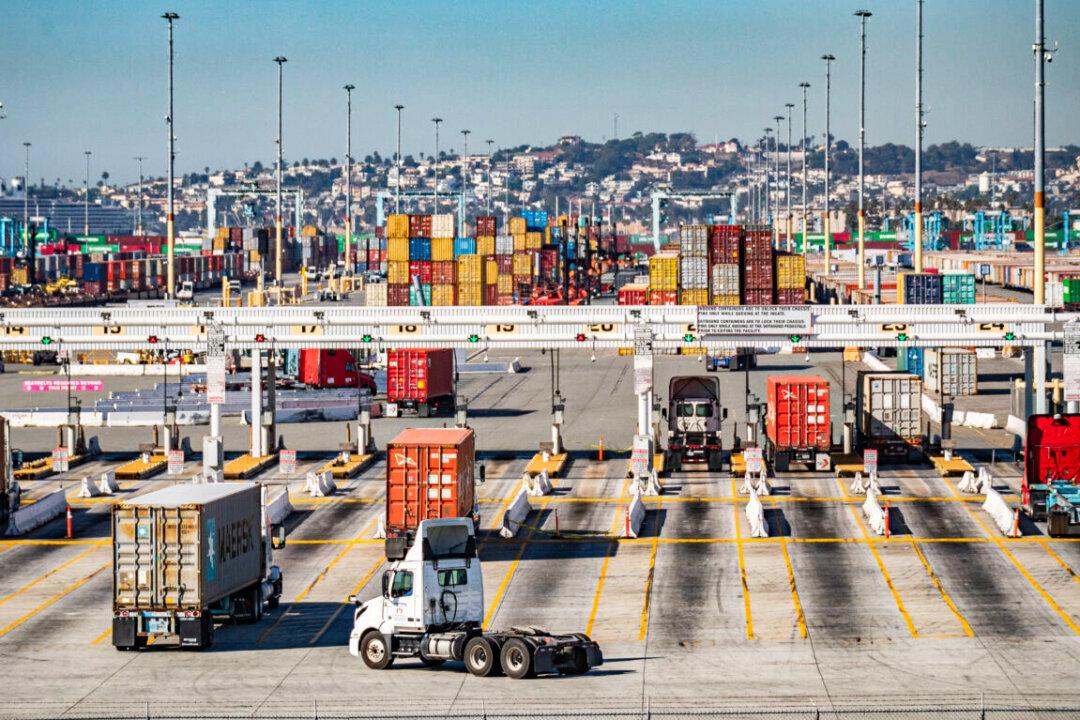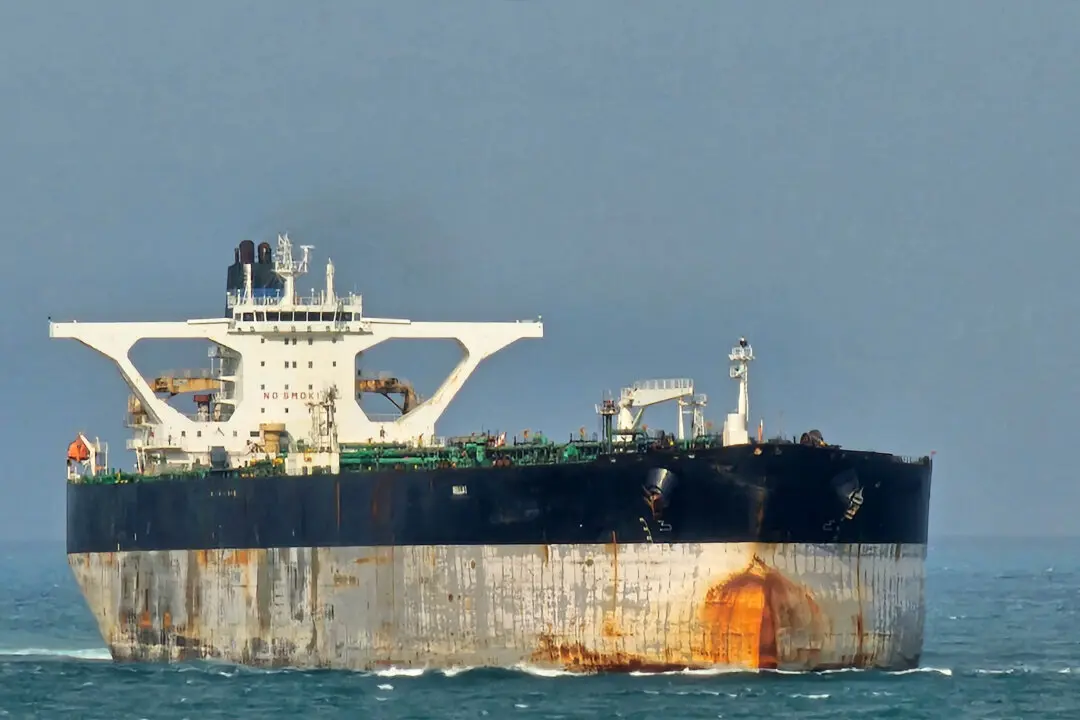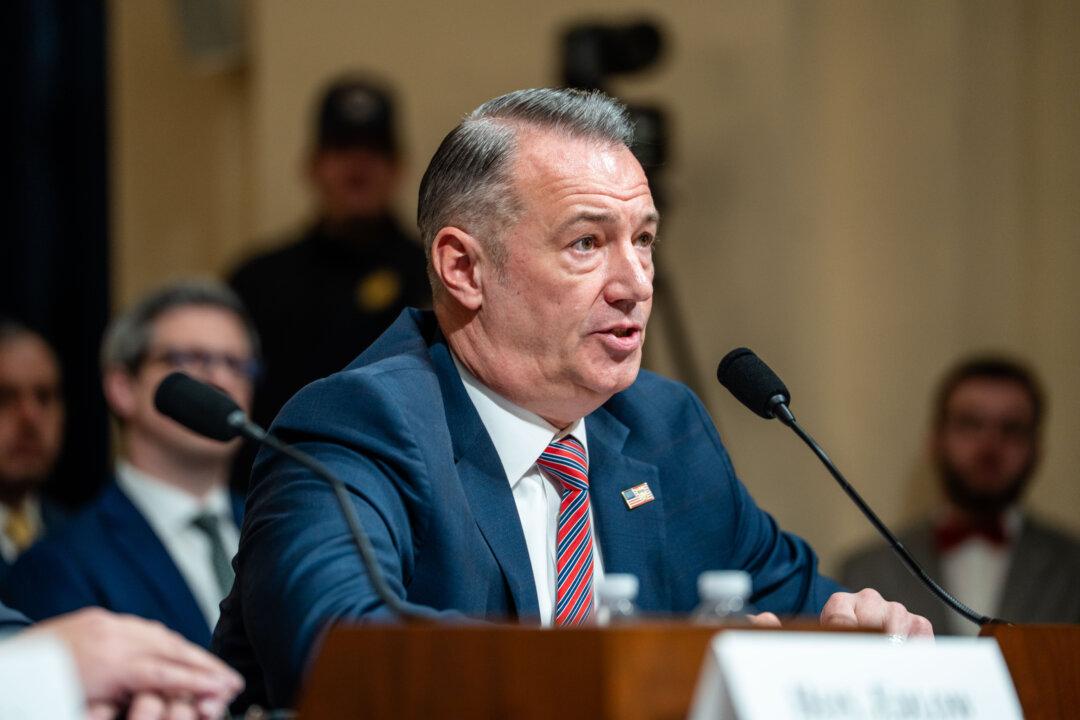To meet its zero-emissions goals, Los Angeles and Long Beach ports will start charging fossil fuel trucks an extra fee on April 1 to pick up or drop off shipping containers.
Most trucks at the port will be charged an extra $10 per 20-foot container—the standard measurement for a container—each time they enter or leave the terminals.





